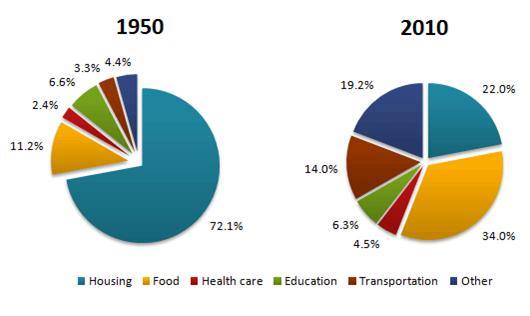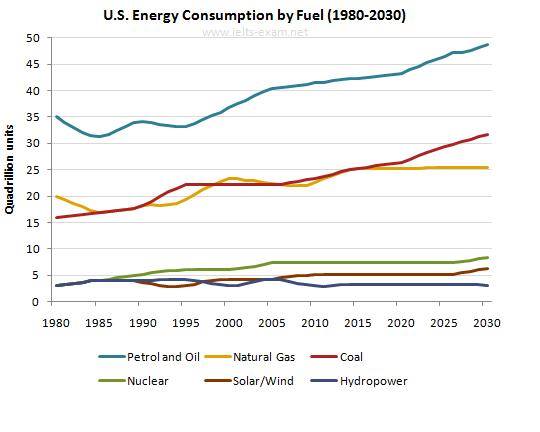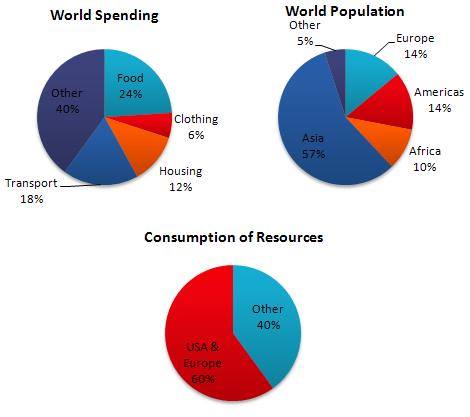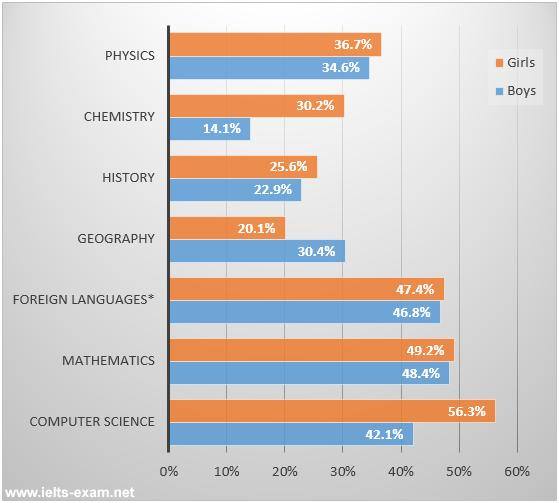Research Papers /
Discourse of Democracy in Indonesia: Critical Study on Media and Elites Language Ideology [2]
Discourse of Democracy in Indonesia: Critical Study on Media and Elites Language Ideology(Dissertation Plan)
1. BackgroundMedia freedom is one of the main objectives obtained by Indonesian people in 'Reformation Order' (Orde Reformasi) after they had long been shackled under the authority of 'New Order' (Orde Baru) regime. Beginning in 1998, 'Reformation Order' seemed to be wind of change, particularly in media change. Before 'Reformation Order', under 'New Order' ascendency, several media in Indonesia were muzzled, such as Tempo, Detik, and Editor. At that time, under the ruling government strengthened by armed force - the 'Order' what Eklof (2003) mentioned as 'reigned supreme'- no one could freely express his or her mind, including media. A great number of social activists and students were abducted, detained, seized, and event murdered. Some of them were lost and where their funeral could not be found. On contrast, 'Reformation Order' did not only bring new expectations of Indonesian liberty, but also open a space for a new democracy era in which Indonesian people for the first time could vote their president directly and democratically through general election in 2004. Media at that time could widely cover election dynamic without government force. Soesilo Bambang Yoedhoyono was the first directly elected president resulted from reformation era. Media, one of four democracy pillars (hierarchies) beyond legislative, executive, and judicative, quintessentially play a significant role in making a new order of Indonesian democracy.
Acquiring a remarkable power as a result of Reformation Order, Indonesian media, as an institution having role for social control, seemed success to escort politic, economy, and social issues occurring in Indonesia. In the first period of Soesilo Bambang Yoedhoyono's presidency (2004-2009), one of the most famous issues attracting media was what was soon dubbed as 'the Century case' scandal. A number of state officials were highlighted by media in this case, including Financial Minister (Sri Mulyani) and Governor of Indonesian Bank (Bodiono). Indonesian president, Soesilo Bambang Yoedhoyono, was even connected to this case. Covered continuously by media, this case ultimately became one of the main and prominent agendas in Parliament plenary season in 2010. Unfortunately, this case halted just in Parliament plenary session. Meanwhile, the big guys who were involved in this problem have remained obscured.
Other great cases blew up by media seemed to animate an expectation for Indonesian people. Some politicians who were accused and alleged as corruptors spread rapidly. Several cases can be exemplified here: (1) 'importing of cow beef' case involving Keadilan-Sejahtera Party (PKS) president; (2) gratification on 'building athlete dormitory' involving Anas Urbaningrum, Andi Malarangeng, and Nazaruddin, from Democrat Party (PD)- Anas Urbaningrum was a chief of Demokratic Party, Andi Malarangeng was Minister of Youth and Sport, and Nazaruddin was general treasurer of Democratic Party; (3) gratification on 'building education hospital' in some universities in Indonesia involving Angelina Sondakh, Secretary of Democratic Party. All of those guys were sentenced and imprisoned.
Media freedom generated through 'Reformation' spirit apparently diminished sceptical view amongst people wishing betterment in all sectors, such as economy, politic, law, education, et cetera. Since the Reformation, media have been mainly supposed to be the main trigger to overcome complicated problem faced by Indonesia. Firmly pressured media in pioneering state problems from day to day apparently enhances people trust on media as an 'extension of people's tongue' - penyambung lidah rakyat (see Anderson, 1990). On this point, one question deserve to be noticed: is it now the time in which all of national problems have to be fully relied on media? This question is slightly difficult to be answered because of several reasons. Firstly, even though on the one side media seem to devote their dedication for people necessity, there are no significant changes within people in acquiring better life, particularly in getting standard income or job. In contrast, a great number of unemployees, low salary employees has brightly proven this circumstance. Secondly, media can only become 'watch dog' in particular case but become nonsense in another particular case. Lapindo case- a great muddy flood emerging from excavating oil-mining process committed by Lapindo Company in Surabaya, East Java-, for instance, is an obvious example in which media (TV One for example) attempt to avoid this problem because the owner of TV One is relatively connected to Lapindo Company. This point can be seen through how TV One usually frame Lapindo disaster base on its viewpoints. Therefore, this fact trigger a deep enigma on media and (in the name of) democracy, as mentioned by You (2015, p. 2) that:
One of the world's puzzling challenges is why many countries with democratic accountability mechanisms would suffer from rampant corruption and why democratic countries, especially young democracies, experience different levels of effectiveness in controlling corruption. I argue that inequality increases the risk of clientelism and elite capture, thereby isolating democratized countries that are plagued by corruption from those that manage to control it.
The further question that can be properly conveyed is, why do people easily believe in media and indeed in government (elite groups)? This question also cannot be answered straightforwardly, but some clues can be tracked through what Anderson written on his work. According to Anderson (1990), the term 'rakyat' (people) refers to people who are 'masih bodoh' (nonelite or nonleader). It was opposite to the term 'pemimpin' (leader). Thereby, as noticed by Anderson, the residual influences of feudalism phase takes role not only on the bureaucracy system in Indonesia, but also on relationship between elite and people.
[...] Insofar as there was any sociological perspective at all, it centred on an elite-mass dichotomy, symbolized by words pemimpin and rakyat. The word pemimpin (leader, big shot) [...] is quite undifferentiated in character and is applied without any sense of disjuncture to officials, generals, and political alike. At the button of political system are the rakyat [...] again a term without any precise sociological contours (Anderson, 1990: p. 61).
Anderson's view remains relevant if we consider the intensive use of rakyat term by elites to justify or to create their interests or goals. 'atas nama raktat' (in the name of people), 'untuk kepentingan rakyat' (for people interest), 'rakyat sekarang sudah pintar' (people are already clever), etcetera. 'Rakyat' here seems to be the centre of political power, but on contrary they have no bargaining position. Having no access into media, rakyat (people) are usually used as political commodity by those who have wide access into media, namely elites or politicians. This problem is worsened by the realm of today's media in the stream of political-economy.
If democracy system in which one state locates media as severe factor in determining its destiny, are there any possibilities of the state destiny will change towards promising life in the future? This question seems to be pessimistic, but it entails immediate response, particularly in dynamic of democracy in Indonesia that looms to be relatively advanced. The supremacy of democracy is profoundly important to be saved, however it should gain intensive intention, especially related with how to locate people not only as the sovereignty holder of democracy but also as the purpose of democracy itself.
The existence of media which are believed as means to strengthen the democratic process should be reviewed. As mentioned before, people having smaller access on media rather than elites tend to be victims of democracy rather than to be productive actors. This condition conspicuously creates a barrier in order to impose Indonesia to be a better developing country. Moreover, elite misbehaviour that usually hides under the language rhetoric preserve and strengthen the decay of democracy. In addition it also undermines the bargaining position of people. This realm, the relationship between media and democracy hegemony, can be clearly understood as a political violence that is coincidentally fertilized by the residue of feudalism and colonialism.
2. ProblemConsidering the argument accentuated on the background above, the main problems which will be investigated within this research is how democracy discourses in Indonesia are produced through language and how they establish certain political culture. From this main problem, several research questions that can be derived are:
1. How is discursive structure of democracy realm in Indonesia produced and reproduced in media?
2. How do media mobilize and (or) transmitt democracy discourse in Indonesia, including haw do they legitimate or illegitimate that discourse base on
their interest?
3. How do elites produce, (or) reproduce (or meaning-making), and naturalize certain ideological meaning as a political violence in the name of
democracy?
4. What kind of political culture have been discursively established in Indonesia, as well as its implication on social life dynamic of Indonesian people?
3. ObjectivesConcerning on the discursive practice in shaping the pattern or discursive structure of democracy discourse in Indonesia, this research is devoted to find and to establish following purpose.
1. By using critical discourse analysis, this research aims explaining critically the discursive practice of democracy that has been established in
Indonesia from which all of the following impacts-media and elites violence-have been generated.
2. Base on certain patterns that will be revealed through this research, it is important to establish theoretical and methodological frameworks that
combine media and democracy studies, at least to enrich current theory and methodology.
3. Method
a. ApproachThe Approach by which this research will be conducted is a Critical Discourse Analysis (CDA). The use of this approach cannot be isolated from view that language basically is social practice through which ideology is usually hidden (Wodak, 1989; Lutz and Abu-Lughod, 1990; Bourdieu, 1991; Gee, 1996; 2005; Mills, 1997; Faiclough, 2000; Wood and Kroger, 2000; Fina, Schiffrin, and Mambang 2006; van Dijk, 2011). Therefore, as social practices all kind of language expression are inherent kind of social practice to assert any interest or ideology through violence or abuse of language, such as bias, distortion, blur, obscure, and so on.
Because this research will attempt to pursue relationship between democracy, media, language, and power, this work will accentuate to theorises on media and globalisation issues, particularly on their nexus with democracy discourse in order to either construct certain world view -what Fairclough mentioned as 'representation of the world' (2000)- or spread widely democracy hegemony on any viewpoint. On this juncture, the viewpoints of Chomsky, Thompson, Lewis, and others deserve to be elaborated. Chomsky, for instance, convinced that American effort to assault other country in the name of liberty and democracy was merely kind of inducing its hegemony for shaping certain (double) standard above liberty and democracy itself. This viewpoint can also be figured out in Lewis's arguing (2005) on democracy, language, and power. As noticed by Lewis, elites have committed violence and even terror thorough media conduit. 'George W. Bush's own invocation of legislative authority which declared a 'war and terror' referenced a specific definition which distinguishes the legitimacy of 'war' against the illegitimacy of 'terrorism'' (Lewis, 2005: p. 22). Accordingly, it is necessary to involve those arguing to explain Indonesian democracy discourse and its role to induce political violence of media and elites In Indonesia.
b. Data CollectionOn dealing to this research, the main data that will be collected are both data regarding to 'democracy discourse' and data regarding to 'politicians language', in which ideology is usually hidden. It is necessary to accentuate that the former will be seen thoroughly as a part of global dynamic, thereby the context in which they emerge also need to gain attention. The latter, data regarding to democracy discourse, will be collected mainly from media, because media are regarded as the main actor in producing and reproducing democracy discourse in order to form 'discursive structure' of democracy. Shaping discursive structure of democracy cannot be alienated from how meaning-making is created and supported. This research also entail supporting data from public discussion (public sphere) in media. Similar to data regarding to the 'elites language', they will be obtained from elite speeches in public space, mainly in media.
c. Data AnalysisThe data analysing which is applied to investigate particular discourse or language, either for constructing democracy discourse or for inducing political violence, in this work, is constituted by framework provided by van Dijk (2011). Choosing to apply van Dijk theory is led by arguing that van Dijk has long time provided a comprehensive theory in studying media base on Critical Discourse Analysis approach, particularly in order to analyse ideology. Principally, investigating media or elite language violence means investigating blurred ideology within it, and investigating obscured ideology has to be tracked through daily utterance represented by media or elites. Van Dijk's views about ideology as daily expression have been widely and comprehensively explained, so that it can be properly and firmly framed a basic analysis by which this research will be constituted. The concepts dealing with 'political violence' such as access, abuse of power, social cognition, are profoundly accentuated on his basic theory (2001). Moreover, van Dijk provides model named by ''ideological square', that is, of positive self-presentation and negative other-presentation' through several modes of representation, either in speaking or in writing, namely topic, schematic, local meaning, lexicalization, style, rhetorical devices, and so on.
References 



